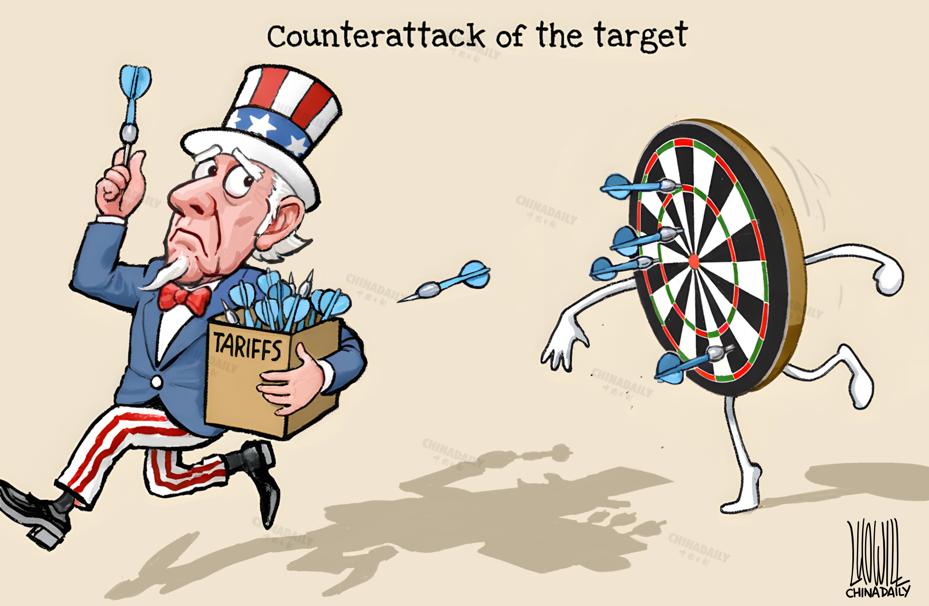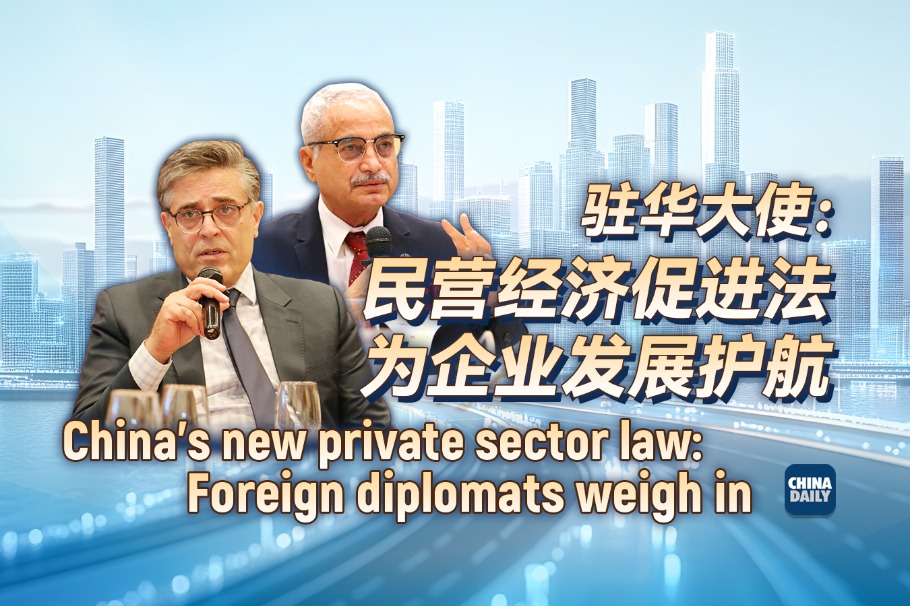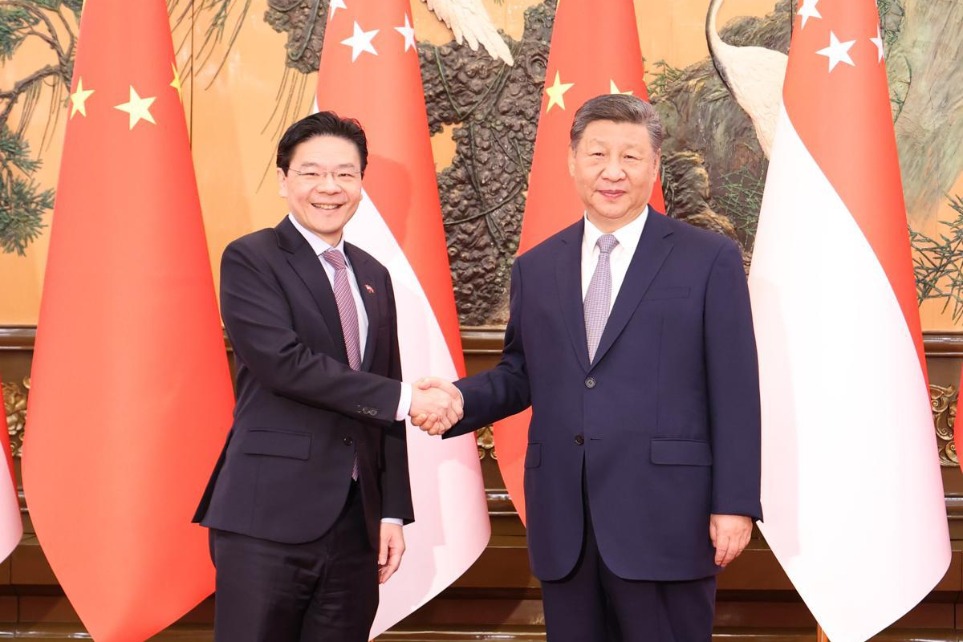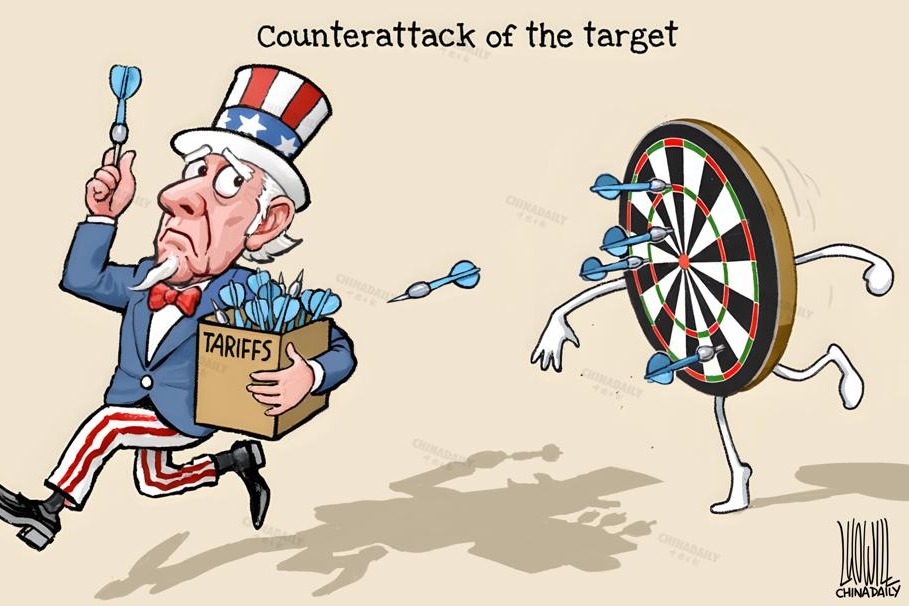Good-neighborly cooperation necessity for ROK


The United States' foreign policy objectives have been progressively becoming clear. During the first Donald Trump administration, the policy was primarily interpreted as an effort to correct the trade imbalance between the US and China, and in the four years of the Joe Biden administration, it was seen as an attempt to maintain the US' advantage in the strategic competition with China.
But after Trump became US president a second time, it became clear the current US administration seeks to restructure the existing world order, because the US can no longer exercise complete dominance over it. And the US administration is using tariffs as a core instrument to achieve this.
The US' tariff policy has been impacting the global economy, as well as affecting diplomatic and security relations. The supposed aim of the tariff policy is to narrow the US' trade deficit, facilitate the reshoring of manufacturing, increase US people's incomes and achieve related goals such as border security, illegal immigration and fentanyl regulation.
The core tenets of the previous US-led hegemonic world order, including multilateralism, openness, alliances and liberal values, are no longer the US' priorities. Instead, preemptive coercion, extreme threats, integrated pressure and the configuration of a US-centric supply chain have emerged as its primary policy aspects. This shift in US policy is having a massive ripple effect on the existing global political, economic and security orders. No wonder China is opposed to a unilateral world order.
Also, the Trump administration has re-evaluated the alliance system, once considered essential to US national interests, and believes it plays a supplementary role to his primary policy interests. As a result, the US-Republic of Korea alliance, the North Atlantic Treaty Organization, and the US-Mexico-Canada Agreement are all experiencing fluctuations.
The US no longer seeks to play the role of the "world policeman". Instead, it is reverting to a form of great power international politics prevalent in the late 19th century, when major powers pursued only their interests through negotiations and compromises among them, often at the expense of weaker nations.
The liberal efforts that sought to establish a world order based on norms and rules, preventing great power international politics after the bitter experiences of the two world wars, are facing severe challenges.
The US has also been taking measures to contain China's rise. But rather than suppressing China, the US' strategy actually has made China more determined to succeed in its development and modernization endeavor. China is widely regarded as a leader of the "Fourth Industrial Revolution", and expanding its global influence. The China of the past is history.
The world is currently experiencing a hybrid order that blends great power politics and regional competition. Amid the transforming world order, the ROK faces exceptionally tough challenges. The liberal hegemonic order of the US, which served as the external environment for the ROK's industrialization, democratization, and informatization after liberation, is now confronting the reality that it no longer sustains. This indicates that the ROK is in a perilous position.
The ROK's national power is comparable to that of a major country. In this "era of chaos and upheaval", there is a need for the ROK to break away from the existing practices and mindsets and prepare in the following ways: by strengthening its self-defense capability; turning the ROK-US alliance from one of unilateral dependence to one of mutual benefit; shifting the paradigm of inter-Korean relations to one focused on coexistence and development; securing regional and strategic stability; expanding its global strategic vision; and improving its economic security strategy.
China, which is competing with the ROK in the global market, and the US, which is strengthening tariff barriers to attract advanced manufacturing, both have different interests when it comes to the ROK. The ROK needs to continue and deepen economic exchanges with both the US and China.
Furthermore, the ROK must venture into third-country markets beyond the US and China. And unlike the US in the Trump era, which is reinforcing protectionism, the ROK should collaborate with other countries to establish a new trade order in Europe, Asia and other regions that prefer to maintain openness and the free global trade order. Although the ROK-US alliance will remain a main pillar of the ROK's foreign policy, the ROK will continue its cooperation with China because that is no longer a choice but a necessity.
The author is director of China-US Policy Institute at Ajou University and president of the Plaza Project.
The views don't necessarily reflect those of China Daily.
If you have a specific expertise, or would like to share your thought about our stories, then send us your writings at opinion@chinadaily.com.cn, and comment@chinadaily.com.cn.
































